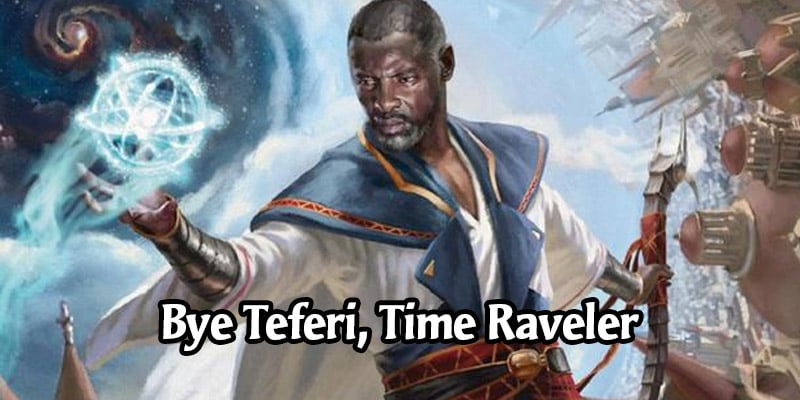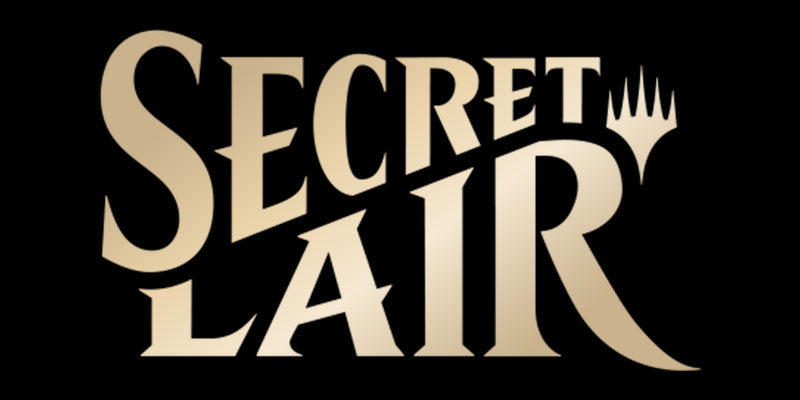We've got an update today for the MTG Banned and Restricted lists. Teferi, Time Raveler gets an early rotation out of Standard, though it hits so hard that no one else wants him!
You can read all the details of today's update below. The effective date for MTG Arena is now, August 3.
Quote From Ian Duke Announcement Date: August 3, 2020
Standard
Wilderness Reclamation is banned.
Growth Spiral is banned.
Teferi, Time Raveler is banned.
Cauldron Familiar is banned.
Pioneer
Inverter of Truth is banned.
Kethis, the Hidden Hand is banned.
Walking Ballista is banned.
Underworld Breach is banned.
Historic
Wilderness Reclamation is suspended.
Teferi, Time Raveler is suspended.
Brawl
Teferi, Time Raveler is banned.
Effective Date: August 3, 2020
The list of all banned and restricted cards, by format, is here.
Historic and Brawl sections by Jay Parker
STANDARD
In the last banned and restricted list update, we chose not to make any changes to Standard. At that time, the environment had just seen the results of Players Tours 3 and 4, the companion rules change was recent, and Core Set 2021 had just entered the format. While we saw new decks emerging, ultimately the top decks were able to adapt and retain their metagame share. After watching the environment progress for several weeks and reviewing the decklist entries for the Players Tour Finals, we've decided to make some changes to shake up the metagame.
This set of changes is a deviation from our usual banned-list philosophy for Standard, and as such, we consider it an experiment. Outside of the very top levels of competitive play, including throughout most of the MTG Arena traditional Standard ladder, we're seeing a good distribution of deck diversity and win rates. However, at the skill level of our most competitive tournaments and the Mythic ranking on the Arena ladder, we do see a small number of decks with high win rates and play rates that have remained in that metagame position for quite some time.
Under our usual approach, we would have allowed Standard rotation to provide a natural and predictable shift in the metagame with the release of Zendikar Rising. But in an era of social distancing, the proportion of Standard play occurring on digital platforms has increased substantially. As the rate at which players can rack up games of Standard in digital is higher than in tabletop, we believe it's correct to enact metagame change at a faster rate as well.
Therefore, we're making bans targeted at weakening decks that have been strong and popular at the highest levels of competitive play and at some cards and combos that have overstayed their welcome in the eyes of much of the Standard community.
Ramp decks using Growth Spiral together made up 68% of the day 1 metagame at the Players Tour Finals and represent approximately 25–30% of the metagame at Mythic ranking on the Arena ladder. Within that category, Wilderness Reclamation decks have been considered the strongest archetype by much of the competitive community, making up 54% of the metagame at the Players Tour Finals and about 15% of the Mythic metagame on Arena. In order to remove Reclamation decks from this most played spot and to reduce the metagame share of ramp decks in general, Wilderness Reclamation and Growth Spiral are banned.
Another archetype that has maintained a high win rate over a long period of time is Black-Red (or Jund) Sacrifice, featuring the Cauldron Familiar and Witch's Oven combo. In addition to having high overall win rates, these decks put considerable pressure on aggressive and midrange creature decks. Further, the number of triggers generated by these decks can be cumbersome for both players in digital play. To weaken these sacrifice strategies, open up more metagame diversity, and create a more fun gameplay environment, Cauldron Familiar is banned.
Finally, we'll also be removing Teferi, Time Raveler from the environment. We've often heard the feedback that the repetitive play patterns and reduced capability for interaction that Teferi, Time Raveler can create feel oppressive and limiting. While we'd considered banning Teferi, Time Raveler in past updates, one reason we didn't was evidence that it was helping hold Wilderness Reclamation decks in check. With Wilderness Reclamation leaving the environment, we feel it's also time for the Standard metagame to move on without Teferi, Time Raveler.
We note that Growth Spiral, Wilderness Reclamation, and Teferi, Time Raveler were already slated to rotate this fall with the release of Zendikar Rising. With that in mind, we view this set of changes as an early rotation for those cards to help freshen up the remaining summer metagame. In the case of Cauldron Familiar, we're taking the opportunity not only to improve the metagame short term but also remove a balance risk and undesirable play pattern leading into next year.
We emphasize that these changes are, to a large degree, a product of the times and the current focus on digital play. We look forward to hearing community feedback on this approach and will continue to keep an eye on the metagame going forward.
PIONEER
With the last banned and restricted list update, we chose to unban Oath of Nissa in Pioneer. This wasn't intended to be a major update to the format or an alternative to other changes, but rather what we viewed as a relatively safe unban in the context of a metagame that was looking healthy by many metrics. Much community discussion followed that update, prompting us to take a further look at the need for change in Pioneer.
Although we continue to see many different decks have success in Pioneer, and no decks with problematic win rates against the field, we do see that combo decks as a group make up a large portion of the competitive metagame. We've heard feedback that the frequency at which one finds themselves facing an opposing combo deck restricts deck-building options and can make play experiences unenjoyable. While win rate data may not point to change being needed, a different, more important set of data does: player participation.
While the reduction in tabletop tournaments due to the need for social distancing shortly after Pioneer's launch earlier this year is certainly a factor, we've also seen a decline in Pioneer play rates on Magic Online throughout the course of the year. It's clear that many players who have been, or could be, interested in Pioneer are ready for a change. Ultimately, how much fun players are having with the environment is the most important driving force behind B&R updates, and so we're choosing to ban four cards to shake things up and push the competitive metagame away from combo decks.
These bans are primarily aimed at disrupting Inverter of Truth decks; Underworld Breach decks; the Heliod, Sun-Crowned plus Walking Ballista combo; and Kethis, the Hidden Hand combo decks. While Kethis combo decks are a relatively new reemergence in the metagame, we're seeing signs that these decks are already problematic and would become more so if other top decks were weakened. Kethis decks are currently among the top 5–0 trophy winners in Magic Online Pioneer leagues, despite being a modest portion of the field.
Therefore, we're choosing to ban Inverter of Truth, Underworld Breach, Walking Ballista, and Kethis, the Hidden Hand in Pioneer. Our intent is to dramatically reduce instances where players risk losing to a combo kill when tapping out in the early- to mid-game. This should open up the field for more traditional midrange and control decks and put less pressure on aggressive decks to also focus on hand disruption and counterspells.
We did consider several other cards as alternative bans aimed at these same decks. Thassa's Oracle was one that we discussed as a lighter touch for weakening Inverter and Breach decks. However, Inverter decks are still capable of winning with Jace, Wielder of Mysteries alone, and it isn't clear that a Thassa's Oracle ban would be enough to push Inverter decks out of the competitive metagame. Next, even though Thassa's Oracle has often been a win condition of choice for Underworld Breach decks, once the deck's core combo engine is running, it can win in many ways. Some recent versions of the Underworld Breach deck even forgo Thassa's Oracle entirely. The cards we've chosen are the set that gives us the most confidence in creating a significant shift in the metagame.
We understand that this represents a large change to the Pioneer environment, and, frankly, that's the intent. While we're past the phase of frequent weekly updates to Pioneer, we're still in a period where changes are necessary to help shape the format in its initial launch year. We want to ensure that Pioneer can deliver an enjoyable play experience to players who are looking for an accessible, nonrotating format that's closer to Standard in power level and offers a variety of archetypes and decks to choose from. We're dedicated to actively supporting Pioneer and will continue to incorporate both data and community feedback.
HISTORIC
The Historic metagame is moving quickly right now; the addition of new cards through Jumpstart is having a large impact, as will Amonkhet Remastered when it arrives soon. There are many of these new decks we are watching closely, but our strong preference in times like this is to give the meta time to develop naturally. We want to see which of these new decks turn out to show enduring strength versus merely making an initial splash. That said, there are two places where we feel we have enough information that we should take action: Wilderness Reclamation and Teferi, Time Raveler.
We touched on Wilderness Reclamation in our last banned and restricted list update, saying that, while it was powerful, we were only seeing it in problematic decks alongside Nexus of Fate. Since then, we've seen a Temur Reclamation list grow steadily in Historic that leverages both Expansion // Explosion and Field of the Dead. We are seeing this deck put up significant numbers, representing over 10% of Best-of-Three games while maintaining concerning win rates. This is a card and deck configuration that we have spent a good bit of time discussing, analyzing, and watching, so we feel that it is one where we have enough information to act. In order to encourage increased metagame health and variety, Wilderness Reclamation is suspended in Historic.
For Teferi, Timer Raveler, we get much the same feedback in Historic that we get in Standard. In Historic, we also find that the power of the reduced capability for interaction that Teferi, Time Raveler brings scales with the power of the interaction he's preventing and the board he's consequently protecting. He is also seen very frequently in Historic, appearing in over 20% of Historic Best-of-Three games and significant percentages in other modes as well. For these reasons, we are suspending Teferi, Time Raveler in Historic. As with all suspensions, we will be closely monitoring the impact this has on the format.
BRAWL
Teferi, Time Raveler is one of the most played commanders in Brawl, appearing in over 10% of games, and he has one of the highest win rates. In addition, we see a similar impact in Brawl to that described in the other formats. For these reasons, Teferi, Time Raveler is banned in Brawl.
ON ANNOUNCEMENT TIMING AND EFFECTIVE DATE
In the past, we've given a one-week advanced notice for updates to the banned and restricted list. Because of the increased focus on digital play environments during this time period, we're choosing to forgo that advanced notice and roll out these changes as soon as possible. This isn't necessarily indicative of how we'll announce and implement in the future, and we're continuing to look at how we balance giving players advance notice versus staying agile with respect to changing metagames.




Comments
Rakdos Sac isn ‘t going anywhere. Just play Serrated Scorpions instead of the cats. Very similar function and blocks better than cat (without Oven
Unless I'm missing something (quite possible since I just started playing), isn't the problem that when you sac a food the cat comes back? That was the worst part when I played against it.
Yes, that's definitely true. But the deck worked perfectly without the cat, it has so much sinergy. It was annoying doing (or watching from the other end) the cat-oven trick over and over but it was not unbeatable. Scorpions play a similar role. I think sacrifice deck will still be around..
They didn’t mention WC compensation for those cards. Instead they emphasized how it was just antecipating rotation for them. I think we’re not getting free WCs this time
I already received the WCs so yes
Sort of wish I didn't craft a few pieces for my blue/green draw token deck two days ago. That growth spiral ban hit it hard :P Not going to argue it wasn't needed, but I don't like the surprise bans.
WotC plans bannings every month or so on Monday so if your planning on spending a lot of wild cards on a new deck, I'd recommend waiting until after the announcement. It's a bit questionable that they banned these cards so late in their standard lives but any archetype that dominates a format for such a long time is always on the menu of getting hit.
Well deserved, also Cauldron Familiar is a pleasant surprise. This should stop the Rakdos sac nonsense with cat and oven from taking over the meta after ramp takes a big hit. Can't wait to see it going.
Lovely surprise. Sweetest Wilcards ever.
Yeah, perfect timing since stuff was gonna rotate anyway. Looking forward to what I can do with them when rotation hits!
Took them far too long ;[
So glad to see T3feri gone. Easily up there as apart of my least favorite cards ever made. With ramp losing a good portion of its support, it might bring me to play more standard again after taking a fairly big hiatus.